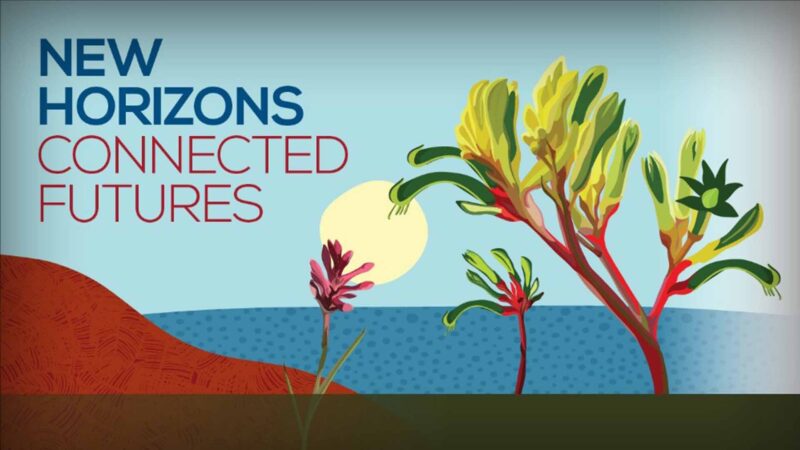IMPERATIVE NEED TO IMPROVE OUTCOMES FOR WOMEN DIAGNOSED WITH OVARIAN CANCER. ANZGOG Chair gives stark assessment on late diagnosis, limited treatment options and significantly low survival rates
With
Professor Clare Scott, Chair
Australia New Zealand Gynaecological Oncology Group (ANZGOG) &
Clinician Scientist
WEHI The Walter and Eliza Hall Institute of Medical Research &
Medical Oncologist, Peter MacCallum Cancer Centre, The Royal Women’s Hospital and The Royal Melbourne Hospital
Australian Health Journal Talk
Filmed Online | April 2025
Professor Clare Scott, a pioneering clinician scientist at the Walter and Eliza Hall Institute of Medical Research in Melbourne, also serves as a medical oncologist at Peter MacCallum Cancer Centre, the Royal Melbourne Hospital, and the Royal Women’s Hospital.
Her comprehensive training in medical oncology has fuelled her specialisation in gynaecological cancer, combining rigorous research with clinical trials to improve patient outcomes. With over a decade of involvement in ANZGOG, Australia’s foremost gynaecologic cancer research organisation, she is deeply committed to advancing research and saving lives.
ANZGOG’s values—excellence, impact, equity, collaboration, and openness—reflect the organisation’s dedication to transformative cancer research. Its strategic plan is designed around four comprehensive goals, aiming to initiate innovative, practice-changing gynaecological cancer research. This not only expands the reach of impactful studies but also ensures that research directly benefits the community, ultimately improving the lives of countless women affected by these cancers.
Ovarian cancer, a complex and diverse group of diseases, poses significant challenges in diagnosis and treatment. While high-grade serous ovarian cancer is often highlighted, other rare types also demand critical attention. With projections indicating over 1,800 Australian women will be diagnosed by 2025, and a startling survival rate of just under 50%, Professor Scott talks of the need to rally together to confront this pressing public health issue. Tragically, two-thirds of cases are diagnosed at an advanced stage, diminishing survival prospects further. As of now, around 5,300 Australian women live with ovarian cancer, facing ongoing challenges that necessitate urgent action and support.
In this Australian Health Journal Talk, Professor Scott talks in detail about the following –
- The incidence of ovarian cancer in Australian women and mortality statistics around advanced stage diagnosis
- The symptoms and why they get dismissed or misdiagnosed
- The challenges in access to screening, treatment and funding for research
She also delivers a message to the medical community and the Australian Government.
Source: Generative AI on transcript
You Might also like
-
Psychiatrists to discuss connectedness at RANZCP 2023 Congress
Next week, at the Perth Convention and Exhibition Centre, The Royal Australian and New Zealand College of Psychiatrists (RANZCP) meet for the RANZCP 2023 Congress on the theme of “New Horizons: Connected Futures”
Australian Health Journal spoke to current President-Elect Dr Elizabeth Moore and soon to be President, RANZCP about the Congress, as well as the recent Federal Budget announcements around mental health funding.
-
Message from former Australian Health Minister Hon Greg Hunt
The Honourable Greg Hunt served in the Australian Government as Minster for Health and Aged Care from 2017, previously as Industry, Innovation and Science Minister and before that the Environment Minister.
Elected as the Member for Flinders in 2001, Greg announced his retirement from politics late 2021 and in 2022, ahead of the Federal Election, having completed 20 years as a public servant.
Australian Health Journal recently caught up with Greg in a relaxed interview at his home in the Mornington Peninsula, Victoria to hear how a 9 month sabbatical has allowed him to focus on family, fitness and future. This has even included some “brutal spin cycle classes!”.
-
Patient-paramedic trust can help free up emergency departments
Dr. Robbie King is a Senior Advanced Care Paramedic with the Queensland Ambulance Service and a community paramedic. He is also a lecturer at the Australian Catholic University in Brisbane. After studying paramedicine and working as a student paramedic since 2009, he recognised that most patients attended by ambulance services did not require emergency interventions.



